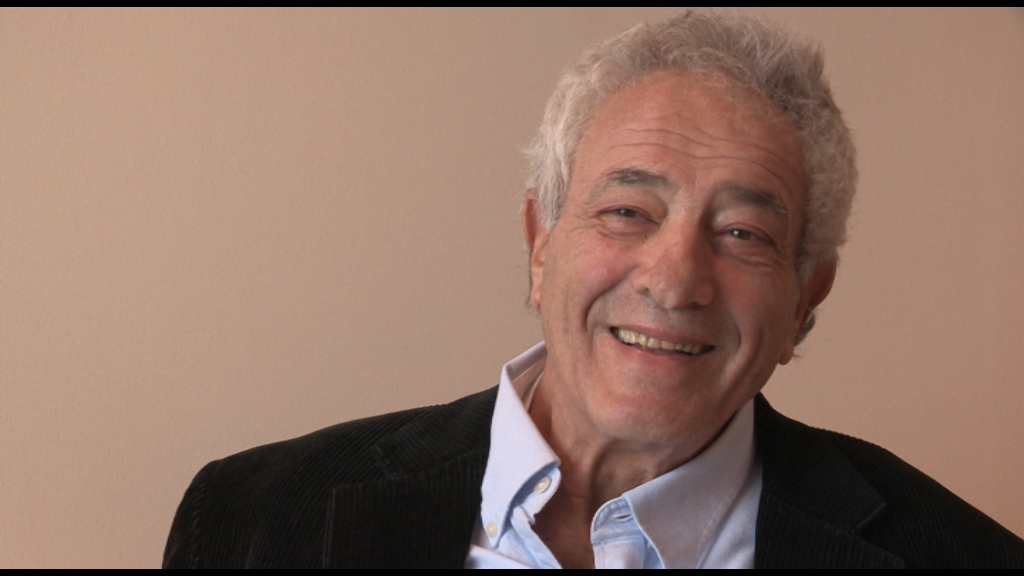NEXT STORY

Ringing the changes at the Penguin office
RELATED STORIES

NEXT STORY

Ringing the changes at the Penguin office
RELATED STORIES


|
Views | Duration | |
|---|---|---|---|
| 71. Our vertical offices | 15 | 02:24 | |
| 72. First brush with the unions | 15 | 02:43 | |
| 73. Doing battle with the jobsworths | 16 | 04:15 | |
| 74. Go-slow Britain | 14 | 03:30 | |
| 75. Ringing the changes at the Penguin office | 15 | 02:42 | |
| 76. Trying to recapture the joy of reading | 21 | 04:03 | |
| 77. Publishing The Far Pavilions | 18 | 04:00 | |
| 78. Shaking up the status quo at Penguin Books | 15 | 02:42 | |
| 79. Turning around Penguin's fortunes | 19 | 02:45 | |
| 80. You can’t have a kissing couple on the cover of a Penguin... | 20 | 02:17 |


And finally, after about six months, the walls were completed around this table. And it was a kind of office. But, on the day it was finished, we moved our offices to the King's Road, and these walls were promptly taken down, which had taken six months [to build], because whoever owned the building wanted the building restored to its original condition. Refurbishment, or there's some phrase for that in British real estate parlance. And so, it had taken six months to build walls around this table. It had been completed. Took six months. Don't know if it was a go-slow period or not. You have to understand, this was before Mrs Thatcher came in, and this was the 'winter of discontent'. Nobody was working very hard in Britain at all. And it was very hard to get anything done. Garbage pickups were infrequent, visits by ambulances to hospitals were also infrequent. You had to hope that you either had no garbage or never got ill. And, but this was all very new to Mary and me. We came from a country which was perhaps benighted in many different ways, but in which the power of the boss was rather great to commandeer work.
Over the years, I didn't think… I came to think that the American system was not so good. But that was the system we were used to. I came to have a lot of respect for the British system over the years, and I found you could work with the unions, although, I have to say, part of that was very tedious. Took a long time to agree anything with the unions and you had to listen to a great deal of ideological cant in order to come to any agreement. But one, at the end of the day, could. And I guess this was aided and abetted by the government taking a very tough view of labour. That was when Mrs Thatcher came in, probably in the spring of 1979. Something like that.
But I don't want to say that I was in approval of many of the things that Mrs Thatcher did. I was not. Constitutionally, I was, in American terms, a Democrat not a Republican. If I had voted in England, I would have voted for Labour, not for the Tories. But it was clear to me that Mrs Thatcher was right about controlling the unions because the unions were not helping Britain succeed in a world of nations. Britain had ceased to be very competitive. And, at the end of the day, if you want to go up the charts, you have to win sometimes. And Britain wasn't winning.
Peter Mayer (1936-2018) was an American independent publisher who was president of The Overlook Press/Peter Mayer Publishers, Inc, a New York-based publishing company he founded with his father in 1971. At the time of Overlook's founding, Mayer was head of Avon Books, a large New York-based paperback publisher. There, he successfully launched the trade paperback as a viable alternative to mass market and hardcover formats. From 1978 to 1996 he was CEO of Penguin Books, where he introduced a flexible style in editorial, marketing, and production. More recently, Mayer had financially revived both Ardis, a publisher of Russian literature in English, and Duckworth, an independent publishing house in the UK.
Title: Go-slow Britain
Listeners: Christopher Sykes
Christopher Sykes is an independent documentary producer who has made a number of films about science and scientists for BBC TV, Channel Four, and PBS.
Tags: Margaret Thatcher
Duration: 3 minutes, 30 seconds
Date story recorded: September 2014-January 2015
Date story went live: 12 November 2015